Missouri farmers accuse Tyson of colluding to keep competitors from buying a shuttered plant, leaving them stranded with millions in debt.
DEXTER, Missouri — On an early August morning in 2023, Shawn Hinkle received a call from one of his technicians at Tyson Foods who, through tears, told him the company’s plant in Dexter was shutting down.
Hundreds of jobs at the poultry slaughterhouse would be lost and farmers like Hinkle, who contracted with Tyson to raise egg-laying hens, would be out of business.
A decade earlier, Hinkle borrowed $2.3 million to build two chicken houses on his land. After struggling to keep up with Tyson’s standards and investing in his farm, Hinkle now owed $2.8 million and faced the prospect of losing it all in bankruptcy.
Tyson said the Dexter plant closure was part of a national effort to streamline production and boost profits — the company also closed three other poultry plants and two beef packing plants.
But Tyson’s explanation didn’t make sense to Hinkle and several other farmers who, in December 2023, sued the giant meat company for breaking its contracts.
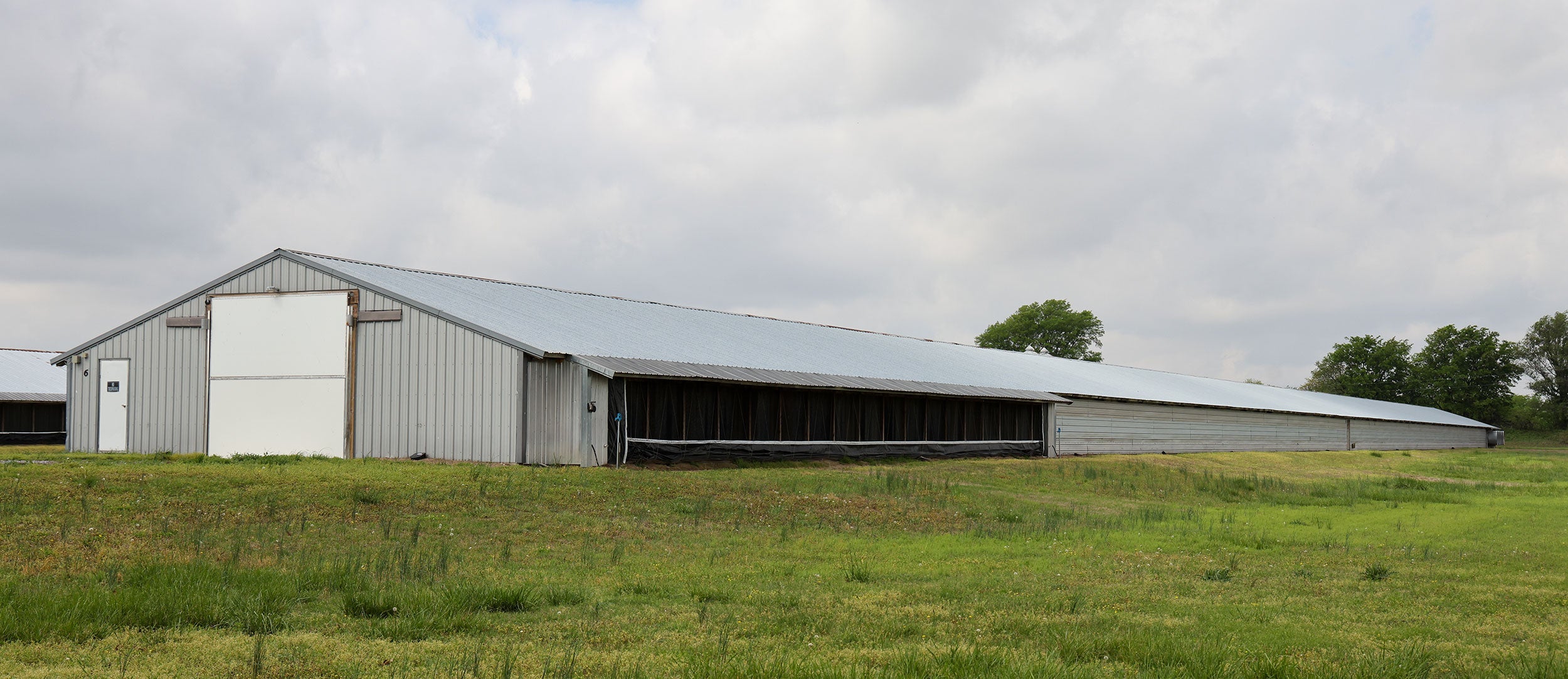
As the lawsuit moves forward, a Watchdog Writers Group analysis of documents filed in the case, in partnership with Investigate Midwest, reveals Tyson coordinated closely with Cal-Maine Foods, the company that ended up buying the Dexter plant. That coordination prevented farmers from continuing their same operations with another Tyson competitor.
Documents also show Tyson tried to prevent its former contract farmers from seeking legal remedies over the broken contracts, and has possibly attempted to discourage farmers from speaking with federal officials and journalists.
Tyson Foods declined to answer detailed questions about the allegations of the lawsuit.
After purchasing the Dexter plant, Cal-Maine offered contracts to local farmers if they retrofitted their farms to raise table egg-laying hens rather than chickens for meat. Unlike many area farmers, Hinke raised egg-laying hens to produce more chicks, which were sent to other farmers. Raising hens for Cal-Maine would have required a significant operational overall for Hinkle and other farmers.
But Cal-Maine’s offer came with a catch: The farmers would have to agree not to sue Tyson Foods for any losses because of the plant closure, according to court filings.
In another sign of coordination, Tyson provided the data that Cal-Maine used in its offer to farmers, according to a copy of the offer letter obtained by the Watchdog Writers Group.
By working with Cal-Maine, Tyson prevented the Dexter plant from being purchased by a competing poultry meat company, like Perdue Foods or Sanderson Foods, according to attorneys representing Hinkle and his neighbors. Local poultry farmers could have transitioned more easily to new contracts with those competitors that produce meat, rather than eggs for consumption.
“Why on earth would Tyson do this?” Russ Oliver, a local attorney representing Hinkle and his neighbors asked during a court hearing in June. “Because if you keep it secret, then Perdue doesn’t find out about your plans. Then Sanderson doesn’t find out about your plans. And you gain a market advantage over the rest of the competition because they have six plants that are all of a sudden stopping production.”
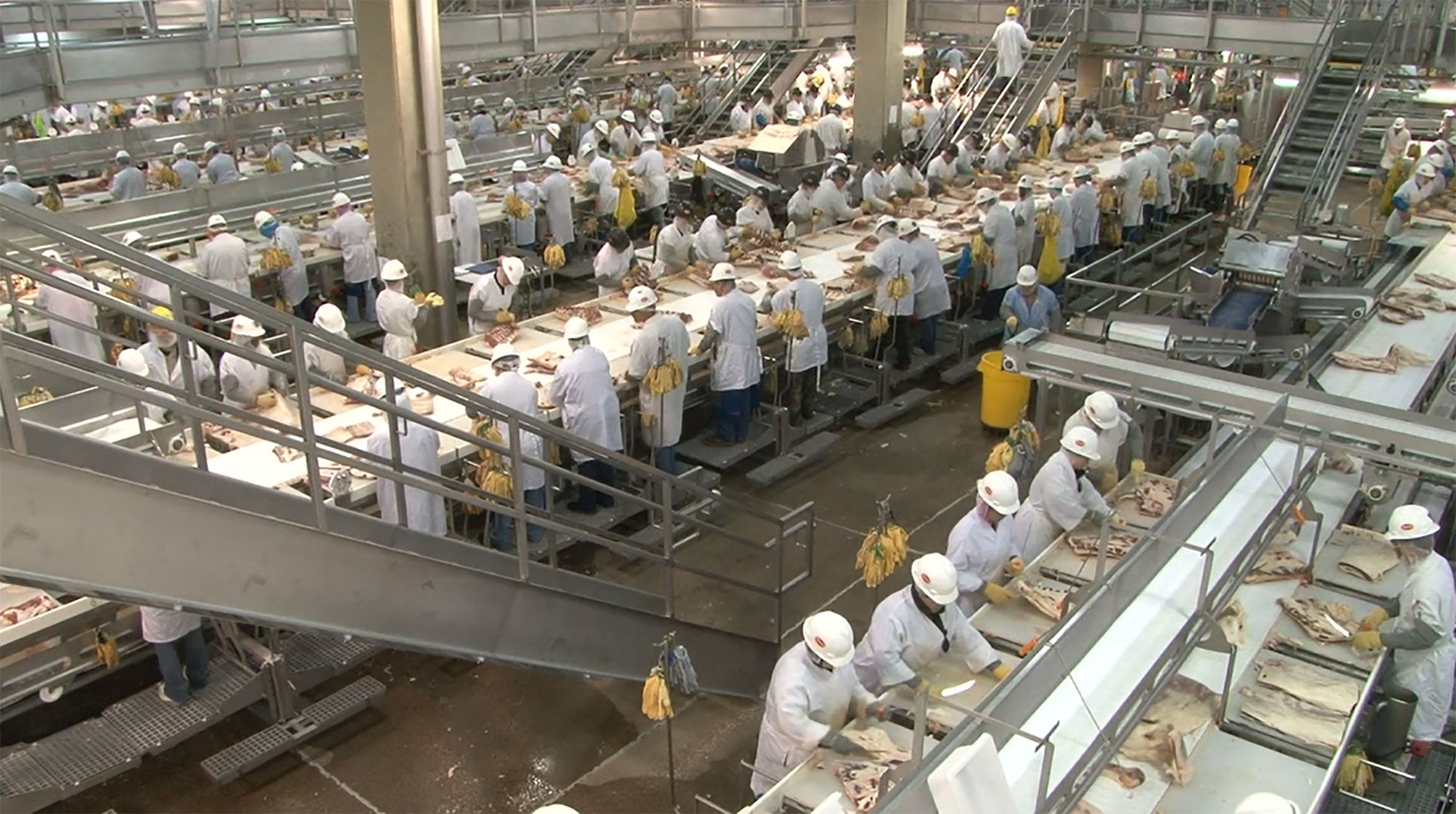
Tyson Foods, which produces about one-fifth of all meat in the U.S., has faced numerous lawsuits and federal investigations over accusations of price fixing.
In 2016, Tyson was sued in civil court by large meat wholesalers who claimed the company cut supplies to inflate chicken prices. Tyson settled that case for $221.5 million.
In 2020, the U.S. Department of Justice sued large poultry companies, including Tyson, for allegedly colluding with competitors to raise prices. The case ended in a mistrial in 2022.
In 2021, producers in Oklahoma, Kentucky, Alabama, Mississippi, West Virginia and Texas filed a lawsuit that alleged Tyson and Perdue Foods shared grower pay data in order to suppress wages. Both companies settled for $35.8 million later that year.
None of these actions have significantly curbed Tyson’s market power, which, together with its next biggest competitor, Pilgrim’s Pride, controls about half the national market for chicken. In the late 1970s, more than 40 companies controlled half the market, according to the USDA.
The latest class action lawsuit filed by Hinkle and other Missouri farmers claims Tyson and Cal-Maine signed an agreement restricting how the Dexter poultry complex can be used for the next 25 years.
Since the lawsuit was filed, Hinkle and his attorneys also believe Tyson has tried to intimidate farmers and suppress media coverage. Tyson asked the court to compel Hinkle and others to reveal all contacts and conversations with officials at the U.S. Department of Agriculture, which regulates antitrust laws on behalf of farmers.
Tyson has also asked the court to make Hinkle and others reveal any and all contacts and conversations with journalists. Hinkle said he is undeterred and will continue seeking compensation through the lawsuit, which does not request a specific dollar amount.
“None of this is anything that we wanted. I didn’t ask for a year’s worth of not sleeping,” he said. “Then again, I’m not going to sit back and get screwed.”
Tyson’s promise of prosperity comes at a cost
Hinkle’s career with Tyson Foods began in 2013 when two managers from the plant said they had an offer that would change his life.
They said Hinkle could build a massive factory farm on his land — using borrowed money that Tyson would help him obtain — where he could raise tens of thousands of chickens at a time under contract for Tyson and earn a stable income for decades.
Hinkle lived on a sprawling cattle farm handed down to him from his father, a farm where Hinkle had been doing daily labor and chores since he was 12 years old. By the time the Tyson managers came to visit, his 1,200-acre spread was nearly paid off.

Hinkle was hesitant about Tyson’s offer. He had heard stories about farmers being forced to borrow money and upgrade equipment, only to have contracts later terminated without warning.
But the Tyson managers assured him those were old stories.
Hinkle’s original fears came true a decade later when Tyson closed the Dexter plant.
Tyson’s tactics: Countersuits and secret deals
When Hinkle decided to sue Tyson, he wanted a lawyer who understood his perspective. He found that with Russell Oliver.
Born and raised in Puxico, Missouri (15 miles from Dexter), Oliver was a farm boy himself. Before becoming the district’s prosecuting attorney, a young Oliver dreamed of carrying on the legacy of his family’s farm.
When Oliver’s father died in 1974, several of his family members dropped their individual pursuits for the sake of the farm. So, when Hinkle approached him, heartbroken and desperate for answers, Oliver felt he had no choice but to help him.
“Everything about this [case] hits so close to home; it’s so much more than lawsuits and money,” Oliver said. “I see my neighbors that share the same identity that I share going through something like this — there’s no way I can’t fight for them.”
In addition to Hinkle, the lawsuit includes four other farmers once under contract with Tyson: Jessie Bridwell, Richard and Samantha Green, as well as R&S Green Farms LLC. The plaintiffs allege that Tyson deliberately misled them by shutting down the Dexter Complex, which caused severe financial damages.
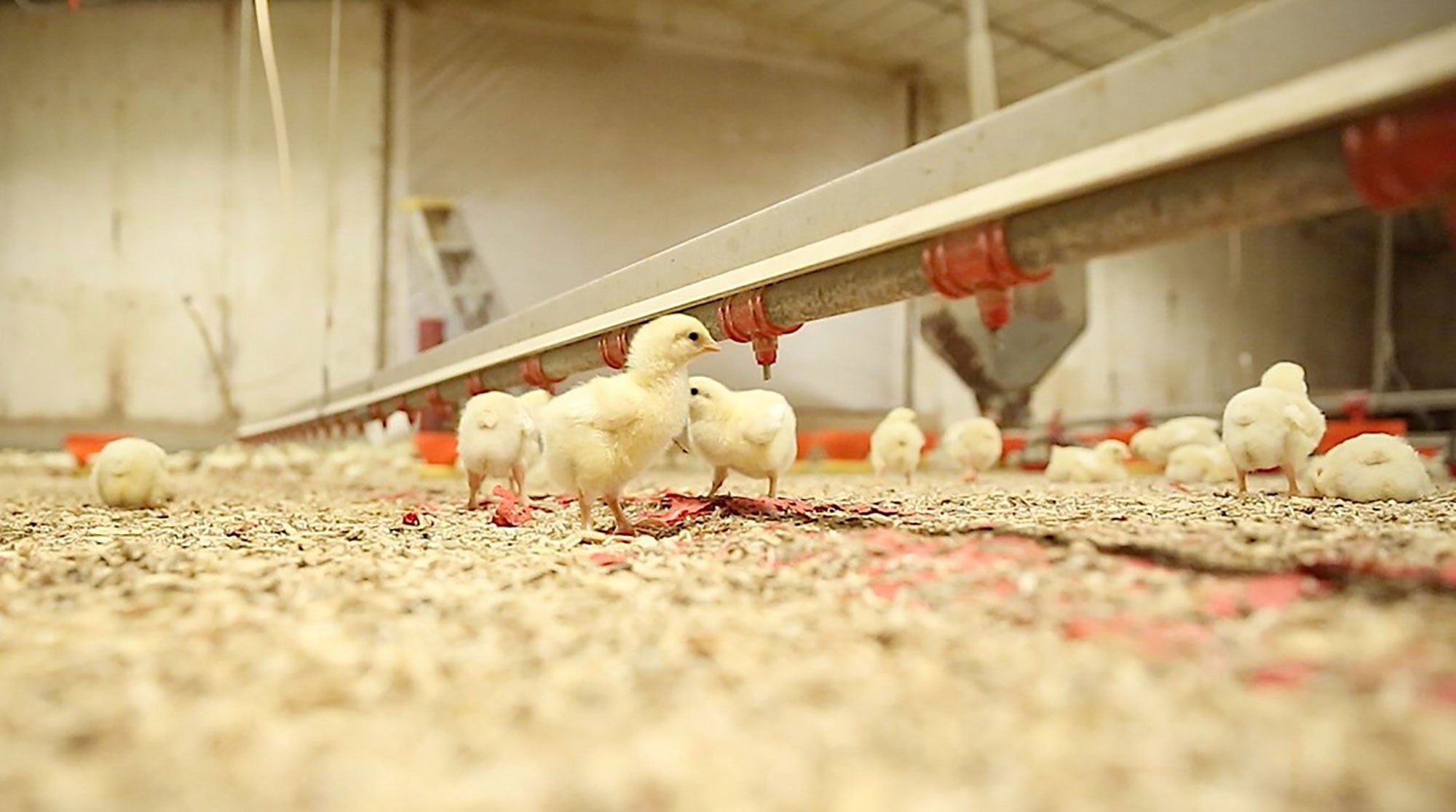
During an April 29 hearing in Stoddard County, Tyson’s lawyers pushed back on the allegation, pointing out that the farmers are still receiving payment from Tyson to this day. This compensation is called outtime payments and refers to the money given to farmers to cover the time it takes to remove birds, clean out their houses and bring in new birds.
Outtime payments are $0.02 per square foot of chicken houses, significantly less than a monthly payment. Hinkle said the payments have been inconsistent and are far lower than what’s needed to cover his debt. He said Tyson technicians assured him that it would take no longer than four to six weeks to receive outtime payments; however, Hinkle said payments sometimes took as long as 20 weeks to show up.’
“My outtime pay doesn’t even cover the electric bill, so what are we supposed to do?” he said. “You’re always in a tumble of not knowing what to do. You can’t budget anything, it’s just a constant state of chaos.”
The lawsuit also claims Tyson knew about the plant closure as early as 2021 when the company filed a disclosure with the Securities and Exchange Commission stating that it had “identified” and “targeted” $1 billion in recurring savings year to year as part of their new “Productivity Program.”
The lawsuit also claims Tyson tried to thwart competition with its sale of the Dexter plant to Cal-Maine Foods, which included an agreement restricting how the plant could be used.
Hinkle’s lawyers alleged that they have a copy of the agreement, and they quoted from it in a court filing.
However, the contract language was redacted in the public court filing.
The agreement between Tyson and Cal-Maine “has eliminated (and will eliminate for 25 years) any competition in the Dexter market area for the services of chicken growers,” the lawsuit claims. The farmers believe Tyson intentionally prevented the sale to a competitor in order to cut supply and raise prices on poultry. The exact mechanisms by which the contract might restrict competition were redacted and remain under seal, according to court filings and Hinkle’s attorneys.
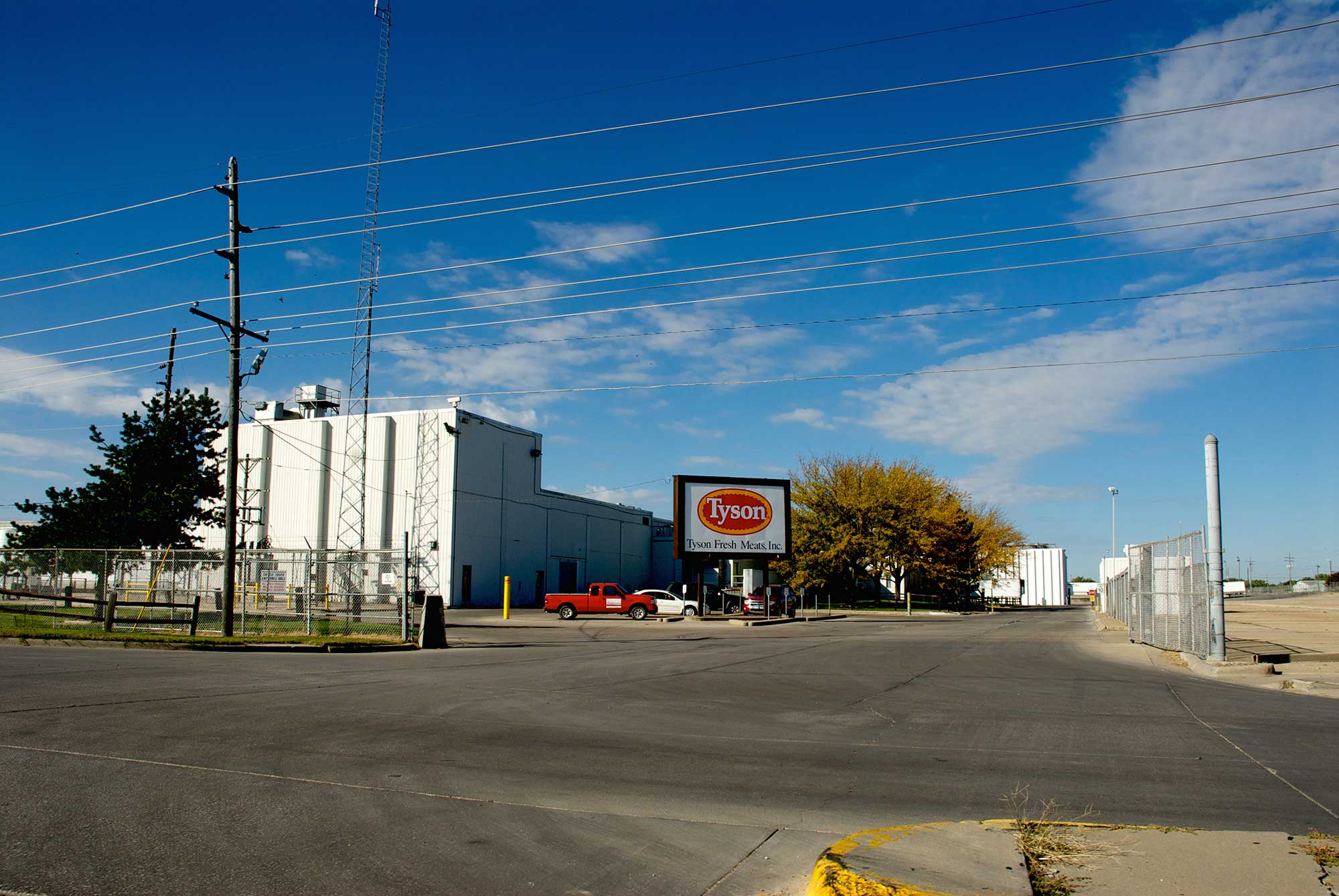
In August, Tyson Foods countersued two Dexter farmers — Elija and Melissa Skaggs — claiming their case should be dismissed because the farmers turned down a chance to sign new contracts with Cal-Maine.
In the countersuit, Tyson acknowledged the agreement’s existence by saying it had terminated it in July.
Tyson said that it had originally signed the agreement because it was worried that Cal-Maine might buy the Dexter plant but then quickly sell it to a competing company that would raise “broiler” chickens for food. If that happened, Tyson would have essentially sold the plant to a direct competitor. Tyson said in the court filing that the company later became “comfortable that Cal-Maine was not trying to flip the Dexter complex,” so Tyson terminated the property use-agreement.
Brandon Boulware, an attorney from Boulware Law representing Dexter’s farmers against Tyson, said terminating the agreement didn’t help the farmers, because the plant had already been transformed into a table-egg producing facility rather than one that produced broilers.
“The damage has already been done,” Boulware said.
Tyson’s agreement with Cal-Maine has also drawn the attention of state and federal lawmakers.

U.S. Sen. Josh Hawley, Missouri’s senior Republican senator, said Tyson’s CEO, Donnie King, personally reassured him in 2023 that Tyson would not prevent a competitor from buying the Dexter plant.
“You misled me,” Hawley wrote in a July 9 letter to King. “These are serious allegations, and the people of Missouri deserve to know the truth.”
Missouri Attorney General Andrew Bailey echoed Hawley in an Oct. 3 letter to King, where he stated that it is “paramount that you do everything in your power to either keep the facilities open or sell to any interested party, including a competitor.”
When Hawley later learned about the property-use agreement between Tyson and Cal-Maine that Tyson kept from public filings, he called for it to be made public. The agreement was part of the larger sales contract between Tyson and Cal-Maine, and was not filed publicly with the county recorder of deeds, according to court documents. Bailey later joined the farmer’s lawsuit.
Confidential or concealed? Tyson’s documents under scrutiny
On June 26, the parties gathered in a small New Madrid County courtroom for a hearing. Behind the four lawyers for Tyson were seven empty wooden benches. On the other side, the plaintiffs’ legal counsel was made up of six lawyers, as well as Oliver’s son. Behind their table sat 11 people, many of them farmers in dirt-ridden boots and plaid dress shirts.
The 9 a.m. hearing was fiery from the outset. Of the 1,325 documents produced by Tyson Foods in the lawsuit, the plaintiff’s attorneys complained all three were being kept confidential. Tyson’s lawyers, led primarily by Zach Chaffee-McClure, argued that the opposing legal counsel had used some of the confidential documents without permission. They asked for the plaintiff’s lawyers, Brandon Boulware and Oliver, to be sanctioned.
Boulware and Oliver were quick to express their disbelief.
“This isn’t how we practice law in the [Missouri] Bootheel,” Oliver said. Tyson “wants to deflect, they want this to be about the lawyers and not the crimes.”
Boulware, who was from Kansas City, echoed Oliver’s sentiment. “I’ve been in law since 2005, and I have never been sanctioned; this is a first for me,” Boulware said. “I agree, this is not how things are done in the Bootheel, but it’s not how they are done in Kansas City, either.”
The motion was denied by the judge.
Later, Oliver argued that Tyson was concealing evidence of breaking the law. Oliver asked for four confidential documents to be made public, which included the sale agreement with Cal-Maine.
Oliver also said he had no plans to settle with Tyson and promised the judge that, if given permission, they would disclose these documents to government officials like Bailey, Hawley, USDA and the Department of Justice.
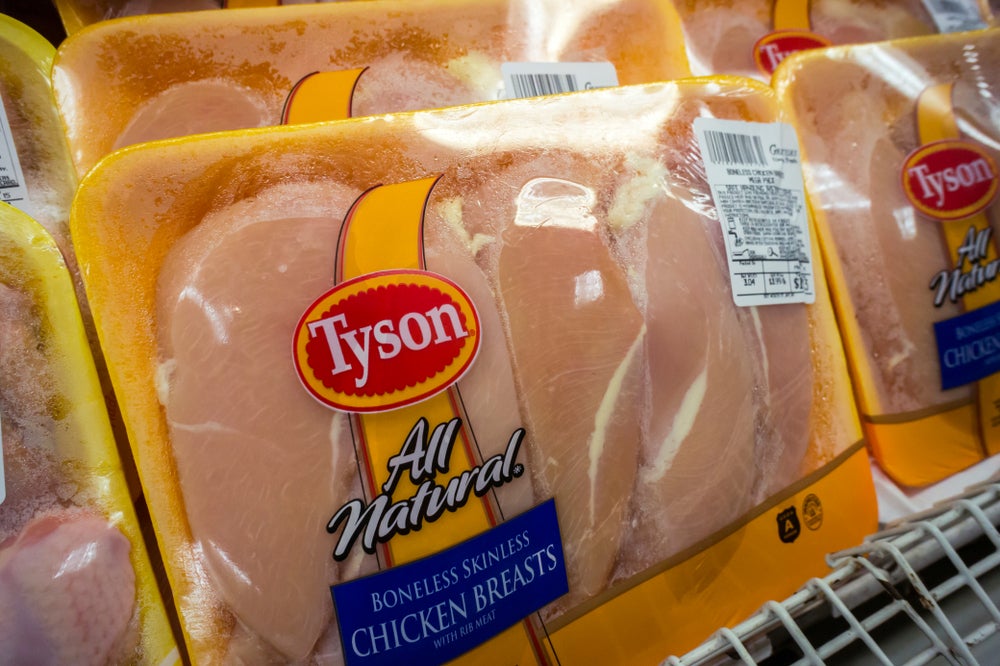
McClure, Tyson’s attorney, responded that his client cooperates with the federal government “all the time,” and that the company is allowed to designate any business or competitive document confidential.
Tyson’s other lawyer argued, using the example of a donut shop, that a business preventing the sale of its property to a competitor happens all the time and is not a crime.
Tyson’s market power under the microscope
If the allegations of antitrust violations are accurate, Tyson Foods could face serious consequences, said Claire Kelloway, program manager for fair food and farming systems at Open Markets Institute, a Washington, DC-based think tank focused on the dangers of monopolization.
“Tyson is a brand that comes with a lot of baggage for those covering the food industry,” Kelloway said.
“Tyson gets some of the credit for turning the industry into this really vertically-integrated model that centralizes a lot of control over the supply chain in one company.”
Calling the poultry industry “extremely unfair” and “exploitative” of farmers, Kelloway added that Tyson’s size and political power make it difficult to hold them accountable.
“The industry needs a lot of sunlight and scrutiny,” she said. “Hopefully, the reforms and rulemaking keep coming until these antitrust laws are being enforced as intended.”
Just shy of two months after the hearing, Tyson’s legal counsel said it would depose Hinkle and the other plaintiffs.
Hinkle was also sent a more demanding request. Tyson filed a motion that would compel him to provide complete copies of all recordings and written communications that he and his attorneys had with media outlets. Tyson also demanded all of Hinkle’s communications with the USDA, which enforces antitrust law for farmers.
Boulware said that his law firm had obeyed Tyson’s subpoena and was compelled to hand over documents related to the firm’s communication with journalists.
“It’s unprecedented for a defendant to seek documents, or communication between a lawyer and the press, rather than defend their own misconduct,” Boulware said.
Tyson also subpoenaed two news organizations: KFVS12, a television station in Cape Girardeau, Missouri, and Talk Business and Politics, a news website in Arkansas. In the subpoenas, Tyson demanded copies of all communications between reporters and Hinkle. The local media outlets that were subpoenaed refused to cooperate, Boulware said, and Tyson has refused to enforce those subpoenas.
Both KFVS12 and Talk Business and Politics declined to comment.
“It’s unprecedented for a defendant to seek documents, or communication between a lawyer and the press, rather than defend their own misconduct.” — Brandon Boulware, an attorney representing Dexter’s farmers
With a trial date set for next June, a lifestyle of financial and emotional uncertainty persists for many of the farmers of the Dexter complex. For Hinkle and other plaintiffs, this lawsuit is personal. They, along with Oliver and Boulware, insist this has never been about money; it is about what is right and wrong.
“These companies need to understand that the days of building an empire on our backs and then just throwing us out like garbage is over,” Hinkle said. “Not anymore.”
In November, Tyson Foods reported its quarterly earnings. The news was great for Tyson shareholders. Tyson’s poultry division made a profit of $409 million for the quarter, compared to a loss of $267 million the year before.
This story is a product of the Mississippi River Basin Ag & Water Desk, an independent reporting network based at the University of Missouri in partnership with Report for America, with major funding from the Walton Family Foundation.


